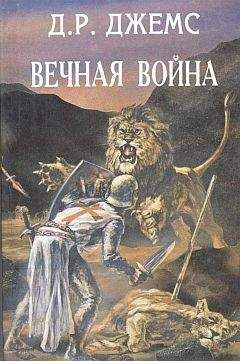Daphne du Maurier - Frenchmans Creek
"Yes," she answered, "how did you know?"
"Because the master of a ship makes it his business to know these things," he said, "and a cabin-boy must be broken in to piracy rather more gently than the rest of my crew. And now to business." He picked up the chart he had been studying and she saw that it was a plan of Fowey Haven, and he placed it before her on the table.
"The main anchorage is there, in deep water, opposite the town," he said, putting his finger on the plan, "and Rashleigh's vessel will be lying about here, where his vessels always lie, moored to a buoy at the entrance of this creek."
There was a cross in red upon the plan to indicate the buoy.
"I am leaving part of the crew on board La Mouette," he said, "and if you wish to, you know, you can stay here with them."
"No," she said, "a quarter of an hour ago I should have said yes, but not now, not any more."
"Are you certain about that?"
"I have never been more certain about anything in my life."
He looked down at her in the flickering candle-light, and she felt gay suddenly, and absurdly light-hearted, as though nothing mattered, nothing at all, and even if they were caught and brought to justice and both hanged from the tallest tree in Godolphin's park, it would be worth it, for first there would be this adventure they would have together.
"So Lady St. Columb has returned to her sick-bed?" he said.
"Yes," said Dona, and she looked away from him, down to the plan of Fowey Haven.
"You will remark," he said, "there is a fort at the entrance of the haven, which is manned, and there are two castles, one on either side of the channel, but these will not be guarded. In spite of the dark night it would be unwise to attempt the passage by boat. Although I have a fair knowledge of your Cornishman by now, and he is a great fellow for sleeping, I cannot guarantee that every man within the fort will have his eyes shut for my benefit. So there is nothing for it but to go overland."
He paused, and fell to whistling under his breath, considering the plan as he did so. "This is where we are lying," he said, pointing to a small bay a mile or so to.the eastward of the haven, "and I propose going ashore here, on this beach. There is a rough path up the cliffs, and then we strike in-shore and come to a creek - something similar to the creek we have left at Helford but possibly less enchanting - and at the entrance to the creek, in the face of the town of Fowey, we shall find Rashleigh's ship."
"You are very sure of yourself," she said.
"I could not be a pirate if I were not. Can you climb cliffs?" he said.
"If you would lend me a pair of your breeches I could climb better," she said.
"That is what I thought," he told her, "there is a pair belonging to Pierre Blanc on the bunk there, he keeps them for Saints' days and confession, so they should be clean enough. You can try them on directly. He can lend you a shirt too and stockings and shoes. You will not need a jacket, the night is too warm."
"Shall I cut off my hair with a pair of scissors?" she said.
"You would look more like a cabin-boy perhaps, but I would rather risk capture than have you do it," he answered.
She said nothing for a moment, for he was looking at her, and then, "When we reach the shores of the creek, how do we get to the ship?" she asked.
"We will get to the creek first and then I will tell you," he said.
He reached down for the plan, and folded it up, throwing it back in the locker, and she saw he was smiling to himself in his secret way.
"How long will it take you to change your clothes?" he asked.
"Five minutes or longer," she said.
"I will leave you then. Come up on deck when you are ready. You will want something to tie up those ringlets." He opened a locker drawer, and ruffling there a moment, drew out the crimson sash he had worn round his waist the night he had supped with her at Navron. "Lady St. Columb becomes a highwayman and a mountebank for the second time in her life," he said, "but this time there won't be any old lady for you to frighten."
Then he went out of the cabin, shutting the door behind him. When she joined him, some ten minutes later, he was standing by the ladder that had been thrown over the ship's side. The first party had already gone ashore, while the rest were now assembled in the boat below. She went towards him a little nervously, feeling small and rather lost in Pierre Blanc's breeches, while his shoes cut her heels, a secret she must keep to herself. He ran his eye over her and then nodded briefly. "You will do," he said, "but you would not pass in moonlight," and she laughed up at him, and climbed down into the boat with the rest of the men. Pierre Blanc himself was crouching in the bows of the boat like a monkey, and when he saw her he closed one eye, and put one hand over his heart. There was a ripple of laughter in the boat, and one and all they smiled at her with a mingled admiration and familiarity that could not offend, and she smiled back at them, leaning back in the stern athwart and clasping her knees with a lovely freedom, no longer hampered by petticoats and ribbons.
The captain of La Mouette descended last, and he took his seat beside her, holding the tiller, and the men bent to their oars and the boat sped across the little bay to the shingle beach beyond. Dona trailed her hand a moment in the water, which was warm, with a velvet softness about it, the phosphorescence gleaming like a shower of stars, and she thought, smiling to herself in the darkness, that at last she was playing the part of a boy, which as a child she had so often longed to be, watching her brothers ride off with her father, and she gazing after them with resentful eyes, a doll thrown aside on the floor in disgust. The bows of the boat touched the shingle, and the first group of men, waiting there on the beach, laid their hands on either side of the gunwale and pulled the boat out of the wash. They had disturbed the gulls again, and two or three pairs rose with a wailing cry, and a flapping of wings.
Dona felt the shingle crunch under her heavy shoes, and she could smell the turf on the cliffs above. Then the men turned to the narrow path that skirted the cliff face like a snake, and they began to climb. Dona set her teeth, for the climb would be a hard one in these shoes that did not fit, and then she saw the Frenchman beside her, and he took her hand, and they climbed the cliff together, she holding onto him for all the world like a small boy clasping his parent. Once they paused for breath, and looking back over her shoulder, she could see the dim outline of La Mouette anchored in the bay, and the sound of muffled oars as the boat that had put them ashore crept back across the water. The gulls had settled again, and now there was no sound but the small scraping noises of the men's feet as they climbed the path ahead, and away below the wash of the sea as it broke upon the shore.
"Can you go on again now?" the Frenchman said, and she nodded, and his grasp on her hand tightened; so she felt little strain on her back or her shoulders, and she thought to herself, happily, brazenly, that this was the first time he had touched her, and the strength of his hand was good to feel. When the cliff was scaled there was still much climbing to be done, for the going was rough, and the young bracken already knee-high, and he continued to lead her after him, while his men spread themselves fan-wise across country, so that she could no longer count their numbers. He had studied his map carefully, of course, and they, too, she supposed, for there was no faltering in their steps or his, and no pause to reconnoitre, and all the while her clumsy shoes rubbed the sides of her feet, and she knew there was a blister on her right heel the size of a gold piece.
Now they were descending again, having crossed a cart track that no doubt served as a road, and at last he dropped her hand, and struck off a little in front, she following close behind like a shadow. Once, away to the left, she fancied she caught a glimpse of a river, but soon it was lost again, they were walking under cover of a hedge, and then down once more, through bracken and undergrowth and gorse - the smell of it warm in the air like honey - and so at last to thick stunted trees crouching by the water's edge, and there was a narrow strip of beach, and a creek in front of them, opening out into a harbour with a little town beyond.
They sat down under cover of the trees, and waited; and presently, one by one, came the ship's company, silent figures slipping towards them out of the darkness.
The captain of La Mouette called their names softly, and when they had answered, each one in turn, and he knew they were all together, he began to speak to them in the Breton that Dona could not understand. Once he looked out across the creek and pointed, and Dona saw the dim outline of a ship at anchor; she was swinging now, the bows pointing up stream towards them as the first of ebb-tide bubbled down the channel.
There was a riding-light high in the rigging, but otherwise no sign of life, and now and again there came a hollow creaking sound across the water as the ship swerved at the buoy to which she was moored. There was something desolate in this sound, something mournful, as though the ship had been abandoned and was a lost thing, and then with the sound came a little ripple of wind down the creek from the harbour, and the Frenchman, raising his head sharply and looking west towards the little town, frowned a moment, and turned his cheek to the breeze.
"What is it?" whispered Dona, for she felt instinctively that suddenly, for some reason, all was not well, and he waited a second or two before replying, still sniffing the air like an animal for scent, and then, "The wind has backed to the south-west," he said briefly.
Dona turned her cheek in the direction of the wind, and she, too, saw that the breeze that had blown off the land for the past twenty-four hours was now coming from the sea, and there was a tang about it that was different, a wet salt smell, and it came in gusts. She thought of La Mouette lying at anchor in the little bay, and she thought too of this other ship, moored here in the creek, and how the tide now was their only ally, for the wind had changed sides and had become a hostile force.
"What are you going to do?" she asked, but he did not answer, he had risen to his feet, and was making his way down over the slippery rocks and the dank seaweed to the strip of beach beside the creek, and the men followed him without a word, each in turn looking upwards at the sky, and to the south-west where the wind blew.
They all stood there on the beach, looking out across the creek to the silent vessel, and now there was a strong ripple upon the water, for the wind was blowing against the ebb-tide, and the sound of the hollow chain straining against the buoy became louder than before. Then the captain of La Mouette walked a little way apart, and he beckoned to Pierre Blanc, who went to him, and stood listening to his master, his monkey-head nodding now and again in understanding. When they had finished the Frenchman came to Dona, and stood beside her, and he said, "I have just told Pierre Blanc to take you back to La Mouette."
She felt her heart beat suddenly in her breast, and a chill feeling come upon her, and "Why?" she said, "why do you want me to go?" Once more he looked up at the sky, and this time a spot of rain fell onto his cheek.
"The weather is going to play us false," he said. "La Mouette is now on a lee-shore, and the men I left on board will be making ready to beat out of the bay. You and Pierre Blanc will have time to return and hail her before they get sail on her."




